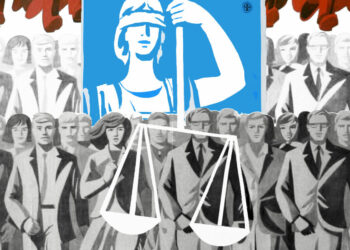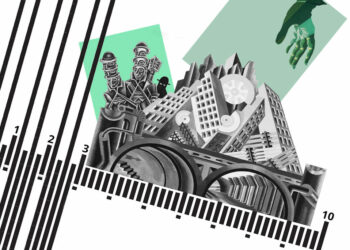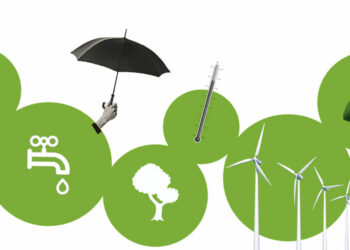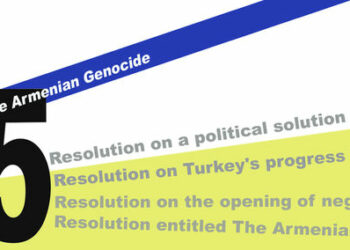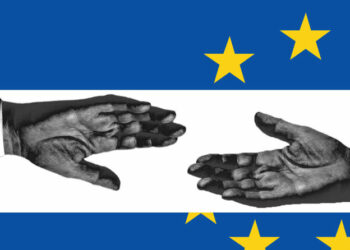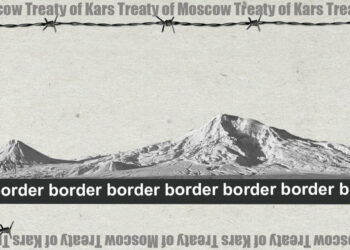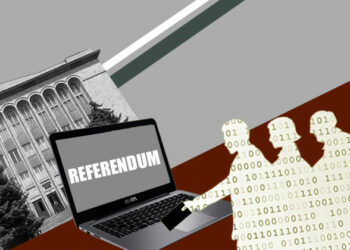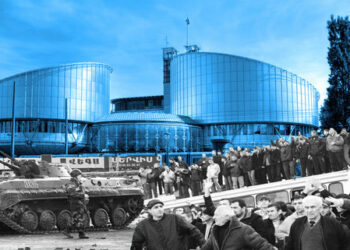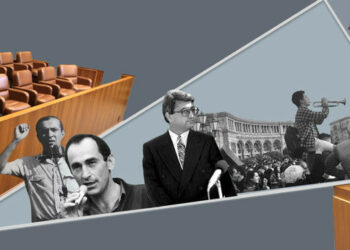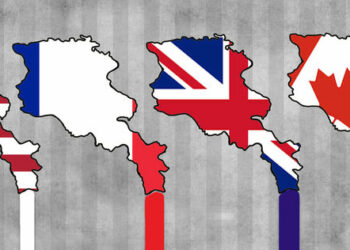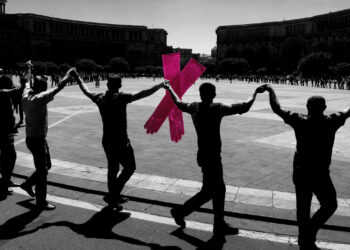Politics
Gagik Tsarukyan to Face Criminal Charges [Updated]
The leader of the opposition Prosperous Armenia Party, tycoon Gagik Tsarukyan was stripped of his parliamentary immunity to face criminal charges and be held in detention. A Yerevan court, however, ruled that he will not be held in pre-trial detention.
The Political Rise and Fall of Tycoon Gagik Tsarukyan
Gagik Tsarukyan is a remnant of the previous system. The era of oligarchs is over, and Tsarukyan must make his peace with that. Armenia is no longer a country for corrupt old men, writes Dr. Nerses Kopalyan.
The Communist KGB Was There to Stay
Armenia’s transition in 1991 brought about a state with a blatant disregard for democracy. The current government should realize the importance of moving forward with a more systematic, effective and coordinated transitional justice platform.
Illegally-Acquired Assets: Reclaiming the Plunder
Armenia’s parliament recently passed the “Law on the Confiscation of Illegally-Acquired Assets.” It is portrayed as a major anti-corruption measure and according to authorities is aimed at former and current officials.
What Happened to the Constitutional Referendum?
The COVID-19 pandemic upended the government’s plans to hold a Constitutional Referendum that sought to dismiss seven of the nine current judges of the Constitutional Court. Here’s what happened.
Primer: Post-Revolution Criminal Cases
A comprehensive list of the most high-profile investigations launched against former officials and their associates following the 2018 Velvet Revolution.
Thick as Thieves: Bringing Armenia’s Robber Barons to Justice
The Armenian government has initiated a broad set of cases against the oligarchs and Robber Barons of the former regime composed of the upper echelon of the previous-pyramid hierarchy. Nerses Kopalyan looks at a number of high-profile cases.
Armenia Follows European Example in Combating Hate Speech
Anna Barseghyan provides a broad overview of the Armenian government’s move to outlaw public calls for violence and draws parallels with the European experience.
ECHR Chamber Judgment Holds Azerbaijan Accountable, But Falls Short
In a Chamber judgment, the ECHR has found Azerbaijan in violation of two articles of the European Convention on Human Rights in the gruesome 2004 murder of Lieutenant Gurgen Margaryan.
The European Green Deal and Its Implications for Armenia
The European Green Deal is an ambitious plan to make Europe the first climate-neutral continent by 2050. Anna Barseghyan looks at the challenges and opportunities for green policy in Armenia.
Roadblocks to a Nagorno Karabakh Settlement
Russian Foreign Affairs Minister Sergey Lavrov’s recent statement regarding a step-by-step approach to resolving the Nagorno Karabakh conflict reflects Russia’s centuries-old imperial instincts of using divide-and-conquer tactics on its periphery.
The European Record on Recognizing the Armenian Genocide
Anna Barseghyan looks back at Europe’s record on the recognition of the Armenian Genocide and writes that as long as new genocides are happening across the world, the Armenian question remains contemporary.
The Eastern Partnership: From Security to Resilience
The EU’s policy toward its neighbors has had several transformations, including a shift from a “one size fits all” approach to a “pick and choose” one. Anna Barseghyan explains.
Armenia’s Moral Obligation to Enact Term Limits
Exactly two years ago, MPs voted for Serzh Sargsyan to become Prime Minister and stay in office beyond his ten-year limit. That should never be allowed to happen again.
Between Armenia and Mount Ararat Stands a Double Layer Fence
Justin Tomczyk traces the history of the Armenian-Turkish border spanning from Armenia’s incorporation into the USSR to the present day, touching upon the Zurich Protocols and reflecting on the viability of a future normalization process.
Artsakh’s 2020 Election: The Essential Primer
Artsakh voters will be heading to the polls on March 31. Incumbent President Bako Sahakyan is not seeking another term. Meet the political candidates vying for support and the political backdrop under which they are campaigning.
Understanding Armenia’s Constitutional Court
Lusine Sargsyan explains the history of the institution that is the subject of an upcoming referendum on April 5, 2020.
Policing Armenia’s Police
A number of police reforms have been introduced over the last two years. Though changes to date have been fragmented, a new strategy document promises a new approach.
Did You Know Armenia Allows Internet Voting? (But It’s Only For Some)
Internet voting introduces major risks but it is used by a small group of people in Armenian elections.
Referendum Called
Armenia’s National Assembly voted to call a constitutional referendum yesterday, which, if passed, would dismiss seven of the nine judges currently sitting on the Constitutional Court.
The Armenian Government’s Plan to Change the Constitution
Since Armenia’s independence, every head of government has shaped the country’s Constitution; Prime Minister Nikol Pashinyan has made it clear that he will not be an exception.
Is Iran a Strong State?
While the short-term crisis between Iran and the United States is over, the situation is far from stable, or certain, specifically due to the volatile domestic situation in Iran.
2019: The Dust Settles
EVN Report takes a comprehensive look back on the events that shaped 2019, from high profile criminal cases to foreign relations.
Negating the Honeymoon Discourse
The International Republican Institute recently published its fourth public opinion survey since the Velvet Revolution. The survey found that a healthy majority of Armenians believe the country is heading in the right direction.
Political Gridlock in Georgia
Protests have gripped Georgia for the last week following a vote against promised constitutional amendments that would have changed the country’s electoral system.
Why the 2016 Gyumri and Vanadzor Municipal Election Results Were Boycotted
Opposition parties in Armenia’s second and third largest cities considered the last municipal elections to be illegitimate and refused to attend council meetings for a year. The concerns they raised can be addressed before 2021.
Direct Democracy: Can Citizens in Armenia Force a Referendum?
Armenia’s Law on Referenda was passed in 2018 but how effective is it at giving citizens a voice?
Digital Politics: Democracy in a Transforming World
In critical post-revolutionary times, public discourse shapes politics. Thus, it is important to be aware of the nature of our digital-political environment. Everything we read, share or say on social media is not necessarily a reflection of the truth.
Observing Stepanakert’s City Council Election
Residents in Artsakh went to the polls on September 8 to elect mayors and local councils across the Republic. Harout Manougian writes about his experience as an observer in the capital Stepanakert and about the process of the vote.
Armenian Political Parties: Where Should the Money Come From?
Harout Manougian writes about how Armenia’s political parties are financed and how that could change as part of the National Assembly’s ongoing electoral reform effort.
The Istanbul Convention Digested
When a young woman was found strangled to death in Yerevan, some in Armenian society decided to give themselves the right to discuss what she must have done to deserve such a fate.
Armenia and Artsakh: A Tale of Two Electoral Reforms
Electoral Code reform has been on the agenda in Armenia following the Velvet Revolution last year and the Republic of Artsakh just enacted amendments to its Electoral Code as it prepares for national elections in 2020. Harout Manougian looks at the situation in both republics.
Georgia Protests: “Citizens Need Alternatives in Politics”
For the past month, protests have been taking place in Georgia. Norik Gasparyan looks at what instigated this latest upheaval and what changes protesters are demanding from their government.
Blocking Courthouses: Tensions and Developments
A day after Armenia's second President Robert Kocharyan was released from pre-trial detention, PM Nikol Pashinyan called on the people of Armenia to block courthouses across the country in what turned out to be a bid to pressure judges to resign because of their alleged connections to the former regime and the people's mistrust towards the judiciary.
The Uncomfortable Truth About the State of Armenia’s Telecommunications
Whether its a minor disruption due to a mechanical issue or a major blackout from conflict in the region, it is only a matter of time before another Internet outage hits Armenia. Policymakers should address this issue and consider a variety of policy options.
Post-Truth Armenia and the Media
The fake news phenomenon is not uniquely Armenian. It’s a global challenge, but when the stakes are so high following the Velvet Revolution, journalists need to rediscover their mission and have an honest discourse about their role in the state of the media landscape.
Populism, People, and the Government in Armenia
Alen Shadunts writes that being democratic should not be a party ideology; democracy is a pre-existing bedrock condition, not an agenda for a particular government.
Will the Revolution Succeed Without the Protection of Labor Rights?
Year after year international reports raise red flags about labor rights in Armenia even when on paper, labor laws are considered to be relatively sufficient. Expectations are high from the new government in terms of ending a number of ills society has been plagued with but what are the common abuses of the labor law and what are the solutions?
New Armenia’s Parliamentarians
Armenia’s first post-Velvet Revolution parliament will hold its maiden session on January 14. Who are the men and women who will be serving the Armenian people as parliamentarians? EVN Report presents some interesting facts.
Can Direct Democracy Work in Armenia?
After coming to power following the Velvet Revolution, acting Prime Minister Nikol Pashinyan made references on several occasions about direct democracy, saying that the highest power belongs directly to the people. What is direct democracy and can it be applied in Armenia?
Armenia-Georgia: Political Will and Deepening Economic Relations
Deepening already existing relations between Armenia and Georgia will only benefit the two countries, however, the potential for economic cooperation is not being realized to its fullest. Armenian and Georgian economists agree that political will is needed.
These Four MPs Left the Republican Caucus to Run Under Pashinyan’s Banner
Who are the four members of parliament who are running against their old Republican Party of Armenia companions as part of Nikol Pashinyan’s My Step Alliance?
Terrorism and the Definitional Issue in the Armenian Legal System
Defining terrorism is the most ambiguous component in terrorism studies, writes Smbat Khachaturian. In light of the current geopolitical situation, the high level of terrorist threats in the region, as well as the transformation of terrorism itself, Armenia must precisely define terrorism and draft a new anti-terrorism law.
Was the Revolution Justified?
Was there just cause for the Velvet Revolution on substantive or procedural grounds? Dr. Simon Clarke applies a number of principles to the events that took place in Armenia earlier this year to determine whether the revolution was justified.
Armenia’s Foreign Policy Conundrum
In the midst of a tremendous domestic transition, Armenia continues to navigate complicated global and regional relations and tensions, while also trying to maintain and strengthen relations with the European Union.
What Type of State Do We Want?
With snap parliamentary elections just a month away, there is a historic opportunity to set the foundations for a democratic state. While fair and free elections are critically important, they are only a first step. Armenia’s democratization must include making human rights the cornerstone and main guiding framework for policy making.
Propaganda and Human Rights Discourse in Armenia
Following the Velvet Revolution, Armenian society is faced with the challenge of reassessing its old values and creating a new value system and group identity, leaving the space open for manipulation and propaganda. Anna Pambukhchyan looks at the values and ideas often propagated as opinion-making mechanisms.
U.S. Ambassador Mills: I Leave Inspired and Hopeful
Departing U.S. Ambassador Richard M. Mills in an exclusive interview with EVN Report speaks candidly about his three and a half years in Armenia, the Velvet Revolution, Artsakh, the region and more.
Corruption and Its Metastasizing Effect
Professor Don Fuller examines how post-Soviet states have had difficulty in breaking normative behavior originating in Soviet times and how corruption is manifested in anti-democratic decision-making practices. He writes that Armenia’s new revolutionary government will be watched for evidence of competent innovation and justice.
Ararat Mirzoyan on Snap Elections, Electoral Code Reforms and Transitional Justice
First Deputy Prime Minister Ararat Mirzoyan sat down with EVN Report to talk about the challenges facing the new government as they prepare, among other things, to introduce reforms to the Electoral Code, make amendments to the Constitution to pave the way to snap elections and the potential introduction of transitional justice to deal with the sheer volume of corruption cases.
Vahe Grigoryan on the Events of March 1, a Dysfunctional Judiciary and Transitional Justice
Is it possible to restore and rehabilitate Armenia’s judiciary? Vahe Grigoryan talks about the significance of a landmark judgment by the ECHR relating to the events of March 1, 2008 when security forces cracked down on peaceful protesters during post-election demonstrations leaving ten people dead.
Revolutions Beyond Roses and Love
Norik Gasparyan, a journalist from Tbilisi writes about the differences and similarities of two revolutions that took place 15 years apart in the South Caucasus: the Rose Revolution in Georgia and the Velvet Revolution in Armenia.
Why the Corrupt are Terrified of Transitional Justice
Formulating the compatibility of transitional justice with Armenia's laws and constitutional statutes shouldn't be problematic, writes Nerses Kopalyan. However, the Pashinyan government, must go out of its way to make certain that the formation of any element of the instruments of transitional justice are fundamentally impartial, profoundly non-politicized, and unequivocally objective.
The Armenian Media Revolution
Without social media and the press, the “Velvet Revolution” could have evolved completely differently. To some extent, what took place was in fact a media revolution. And now, post-revolution, we can register that the media landscape in Armenia is no longer what it was until April of this year. Samvel Martirosyan discusses some of the qualitative and quantitative changes in the Armenian media.
The First 100 Days of Nikol Pashinyan’s Government
Armenia's post Velvet Revolution government came with the promise of snap elections, rooting out corruption and a new style of governance. A look at Prime Minister Nikol Pashinyan's and his government's first 100 days in office.
The First 100 Days of Nikol Pashinyan’s Government
Armenia's post Velvet Revolution government came with the promise of snap elections, rooting out corruption and a new style of governance. A look at Prime Minister Nikol Pashinyan's and his government's first 100 days in office.
Armenia’s New Electoral Code: Part III
In this third part of our series on Electoral Code reforms in Armenia, Harout Manougian looks at the debate about quotas for women and ethnic minorities for the upcoming national elections.
Autocratic Arrogance: Kocharyan’s Arrest, His Apologists and Accountability
Nerses Kopalyan examines and debunks the arguments that the arrest and detention of Armenia’s second President Robert Kocharyan is politically motivated and that the basis of the arrest lacks cogent and substantive legal foundations. Kocharyan has been charged with “overthrowing constitutional order” regarding the events of March 1, 2008 that left ten people dead.
Armenia’s New Electoral Code: Thresholds, Alliances, and Coalition Government
In this second part of our series on Electoral Code reforms in Armenia, Harout Manougian looks at the debate taking place regarding the minimum threshold of the total popular vote political parties need to secure to enter the country’s parliament.
Political Economy and Discontents
Dr. Donald Fuller writes that there is an observable pattern that small state characteristics differ from larger states, particularly those that are not afflicted by the ‘resource curse.’ Institutions appear to be critical, trade can burnish the lack of natural resources and human capital offers a level of comparative advantage if carefully nurtured.
Armenia’s New Electoral Code: Open vs. Closed Party Lists and Other Considerations
Prime Minister Nikol Pashinyan promised to call snap elections as soon as the country’s Electoral Code could be amended to allow for a fair race. Currently there are two bodies forming recommendations. Harout Manougian looks at the intricacies of the Electoral Code and in this first article writes about open vs. closed party lists.
Pashinyan’s War
Nerses Kopalyan writes that Prime Minister Nikol Pashinyan’s declaration of war against the entrenched powers of the previous system is not simply a singular attack against corruption, but rather a broad multi-pronged strategy that envisions an ideational restructuring of Armenia’s political culture.
Human Rights-Based Approaches in Practice: The Armenian Context
Upholding the dignity and rights of each individual is the main function of any democratic state. The change in power as a result of the revolution and the assumption of the office of prime minister by Nikol Pashinyan with the agreement and affirmation of wide segments of society put into motion the formation of a new social contract.
What Can go Wrong: Internal and External Threats to the Armenian Revolution
In this second of a two-part series, Mikayel Zolyan looks at the external threats to the Armenian revolution. He writes that while security concerns continue to be real, the Armenian government and society need to make sure that the government system is well-functioning and ready to face external challenges.
Armenia-Diaspora: The Conservative and the Revolutionary
In this first piece for EVN Report, Vicken Cheterian examines how Armenia-Diaspora relations will be impacted by dramatic changes in the country’s political landscape following the “Velvet Revolution” and whether it will be possible to revolutionize those relations.
Aggressive Centrism: Navigating the Contours of Nikol Pashinyan’s Political Ideology
Policies of previous administrations were not shaped by ideology, but rather, by a drive to consolidate illegitimate power through patronalistic politics. Nerses Kopalyan argues that the political ideology of Nikol Pahsinyan’s new government is aggressive centrism.
What Can Go Wrong: Internal and External Threats to the Armenian Revolution
In the first of a two-part series, Mikayel Zolyan looks as the internal threats facing Armenia’s new government following the Velvet Revolution - the continued resistance of the remains of the ancien régime and potential radicals within the revolutionary camp.
Youth in Power: The Fourth Wave of Armenia’s Political Elite
The traditional cautionary question is often heard in Armenia: “How is it possible, in this state of war, to entrust governance to inexperienced people?” Suren Manukyan looks at the question of youth over the four waves of Armenia’s political elite starting from the Karabakh Movement.
Political Suicide: An Autopsy of the Sargsyan Administration and the Endurance of Armenia’s Institutions
Dr. Nerses Kopalyan applies two conceptual frameworks from political science - prospect theory and historical institutionalism - to understand how Serzh Sargsyan’s Administration collapsed in the face of an unprecedented popular uprising in Armenia.
Oligarchies and Strategic Danger to Small-State Security
While some large-state oligarchies can be operationally benign to citizens, the multidimensional social and economic conditions resulting from small-scale oligarchy creates an inherent danger to national security. The state must free its captive markets by allowing equal treatment under the law for all competitive ventures.
Why is Women’s Representation in Armenia’s Government More Relevant Today?
Including more women in government isn’t just about numbers, but to ensure a broad representation. Lara Cholakian writes that this doesn’t necessarily mean that women political decision-makers will always raise issues that are relevant or important to women, or that male political leaders will always exclude them.
Armenia’s New Government: Who’s Who
The biographies of the new interim cabinet formed by Prime Minister Nikol Pashinyan and other appointments.
Sacral Knowledge and Occam’s Razor
Suren Manukyan writes that those inside or standing beside the regime had created an alternate, false reality and not only convincingly persuaded the highest authorities of this, but also tried to convince the citizens of Armenia to believe that deception.
The May 1 Vote Was Yet Another Watershed in the Armenian Protest Movement
Vahram Ter-Matevosyan writes about the political crisis that has gripped Armenia for three weeks now. He looks back at the special session of parliament that took place yesterday, which failed to elect a prime minister and explains why the Republicans would have served Armenia better if they had treated the matter with velvet gloves instead of an iron fist.
Is 2018 the New 1988?
In this new piece, Mikayel Zolyan writes about the similarities and differences between the 1988 Karabakh Movement and the 2018 Velvet Revolution - what it meant for people then and now and lessons to be learned.
The Necessity of Inclusive Political Institutions
Hamazasp Danielyan identifies principles for the development of the political system, highlighting the circumstances that are delaying the formation of participatory political institutions and the importance of amending the Electoral Code in light of the crisis in the country.
Children in the Hands of an Abusive Father: The Popular Movement, the RPA, and Armenia’s Constitutional Crisis
Armenia is facing its greatest challenge since independence. Nikol Pashinyan’s Velvet Revolution has left the ruling Republican Party facing a crisis of legitimacy. Nerses Kopalyan writes, “Pashinyan is not seeking to usurp the Constitutional legitimacy of Parliament, but rather, force the majority in Parliament to conform to the will of the popular movement.”
Freedom of Information is Jeopardized
One of the most effective ways for authorities to control freedom of speech is to adopt and implement laws and other legal mechanisms that try to curb the work of the media. Shushan Doydoyan takes a looks at recent amendments in the RA law that have served this purpose.
In Praise of the New Prime Minister: Serzh Sargsyan’s Achievements
Today, former president Serzh Sargsyan became Armenia's new prime minister. Dr. Nerses Kopalyan outlines Sargsyan's achievements over the ten years as president. He writes: "The most vital complexity of Sargsyan becoming PM is that it not only reinforces, but also justifies the de-moralization of the Armenian citizen."
The Last 48 Hours in Yerevan
As Armenia's parliament elected Serzh Sargsyan as Armenia's prime minister today and as tens of thousands gathered in Republic Square in protest - here is a look back on the events of the last 48 hours through the lens of photojournalist Eric Grigorian.
Civil Disobedience and Clashes in Yerevan
While parliament prepares to elect the country’s new prime minister on April 17, thousands of Armenians poured out into the streets of the capital, exercising acts of civil disobedience. Clashes with security forces led to dozens of injuries. A recap of the day’s events.
The Slogans, Posters and Language of the Karabakh Movement
One of the distinctive characteristics of the Karabakh Movement was that in less than three years, it drastically changed how the Soviet value system was perceived. The visual and verbal manifestation of this was evident through the transformation of the language and texts of the posters and signs used during the Movement.
Armenia in Crisis Again?
Demonstrators led by Nikol Pashinyan, leader of the Civil Contract party, have shut down a major square in Yerevan, paralyzing the downtown core of the capital to protest former President Serzh Sargsyan’s candidacy for the office of prime minister.
From National Security to the Concentration of Power
A newly adopted law on the “Formation and Activity of the Security Council” was recently passed in parliament that gives the new prime minister more powers over the country’s defense policy. This law came into effect to comply with the package of reforms that was passed in the 2015 Constitutional referendum.
The Karabakh Movement and Azerbaijan
Tatevik Hayrapetyan writes that the Karabakh Movement was a catalyst for domestic developments in Azerbaijan. Unlike in Armenia, however, alternative forces like the Azerbaijani Popular Front in Azerbaijan, couldn’t find a way to collaborate with the local Communist Party. The issue of Karabakh and anti-Armenian propaganda was thereby used in their struggle against the Communist regime.
Security Dilemma and Failed Opportunity: The Armenian Republic in Kars
In an exclusive interview with EVN Report’s contributor Varak Ketsemanian, Alexander Balistreri of the University of Basel reflects on some of the larger historical and historiographical problems pertinent to the region around Kars a century ago and sheds light on the political and military developments that shaped the policies of the Armenian government and the larger regional powers.
Protecting Children’s Personal Data in Armenia
Shushan Doydoyan is the head of the Personal Data Protection Agency of the Ministry of Justice in Armenia. In this piece for EVN Report, she writes about the need to protect children's personal data, the law and media's responsibility.
Six Lessons From the Failed Armenian-Turkish Rapprochement
Armenia’s president signed a decree on March 1 announcing the controversial Armenian-Turkish protocols null and void. Now that the the protocols are a thing of the past, Vahram Ter-Matevosyan writes that the time has come to draw some lessons from an initiative that was long dead.
Ten Victims, Ten Years, Zero Culpability
Ten years after the worst post-election clashes in the history of Armenia’s independent statehood that left ten people dead and hundreds injured, the wounds are still fresh and the pain raw. In this personal essay, Hamazasp Danielyan writes about the events leading up to March 1, 2008 and reflects on his personal transformation.
The Karabakh Movement or What was Happening in Soviet Armenia 30 Years Ago
Harutyun Marutyan writes that the Karabakh Movement was not only the first of the Eastern European revolutions, but it played a considerable role in the democratization of Soviet society, was pivotal in the deconstruction of the Soviet Union and consequently in the elimination of the threat of communism.
The Cost of Political Activism and Jars Full of Sewage
City councillor Marina Khachatryan was attacked by a group of male colleagues when she attempted to hand a glass jar of raw sewage to Mayor Taron Margaryan to highlight the issue of seeping sewage in the Nubarashen district of the capital city.
The President: The New Symbol of Parliamentary Armenia
Under the old governance system the president was the most powerful figure in Armenia. But if the prime minister is going to replace the president as the leader of the executive branch of government, what is the role of the president? In this opinion piece for EVN Report Jenny Paturyan explores the scenarios.
Karabakh Movement 88: A Chronology of Events on the Road to Independence
The Karabakh Movement was a crystallizing moment in the collective and historical memory of the Armenian nation. In this first in a series of articles about the Movement, EVN Report presents a chronology of the events of 1988 which eventually paved the way to independence.
Bound by Duty? The Diaspora’s Normalization of Armenia’s Political System
Dr. Nerses Kopalyan takes a look at the role some of the most powerful Diasporan organizations have played in “reinforcing and indirectly legitimating the country’s existing political system” and draws parallels between the relationship of Armenia’s ruling administrations and their politics of co-opting the powers of the Diaspora.
Armenia at the Center of State-Sponsored Cyber Attacks
A close look at cyber operations against Armenian state and non-state institutions, as well as individuals highlights a number of well known cases behind which are state-sponsored hacker groups or even state structures themselves. Samvel Martirosyan writes about how Armenia, in recent years, has become a subject of interest in almost all major cyber investigations.
Iran: What Lies Beneath
Since 1997 and the coming to power of reformists in Iran, Western countries have refused to see anything else in Iran other than the symbiosis of the so-called reformers and hardliners within the regime. Sohrab Mobasheri, an Iranian political activist and journalist in exile explains: "The writings on the wall were present...Anybody who was willing to do so could see the signs..."
The Question of Iranian Power-Sharing
Iran was rocked by a number of protests last week that caught many by surprise. Loosineh Markarian writes that while many have been focused on the interrelation of the elite and the protestors, recent developments in inter-elite relations could be the significant factor informing the recent outburst.
The Cost of Justice: ECtHR and Cases Against Armenia
Since joining the Council of Europe and ratifying the European Convention on Human Rights, Armenia’s government has been obligated to pay over 900,000 Euros as compensation to Armenian nationals.
Armenia and the EU: A Delicate Balancing Act
The new Armenia-EU agreement can be considered a milestone in the history of modern Armenia and in Armenia-EU relations but how does it change the context of Armenia-Russia relations? And what does it mean for Armenia- from the future of the Nuclear Power Plant to rebranding the Armenian cognac?
Development of Science or Social Justice? The Student Protests and What is at Stake
There are protests on the streets of Yerevan again. This time it is a student protest against a controversial bill on mandatory military service. One of the most powerful student protest movements in Armenia was in 2004 and ironically, some participants of these earlier protests are today themselves pushing for the abolishment of draft deferment for university students from ARP ranks.
Opening of the Akhalkalak-Kars Railway: What to do Now?
On October 30, 2017 the Baku-Tbilisi-Kars Railway better known as the Akhalkalak-Kars Railway, became operational. The Akhalkalak Terminal, is only 30 kilometers from Armenia’s border. What does this mean for Armenia and for the Armenians of Javakhk? Vahram Ter Matevosyan takes a closer look at the implications and prospects for Armenia.
Armenia’s European Path: What to Expect?
Armenia is set to sign a new accord with the European Union in November of this year. Hailed as a new step forward in bilateral relations, the sides remain cautiously optimistic that the signing will go ahead as planned. EVN Report’s new contributor Kristine Gasparyan takes a look back at EU-Armenia relations over the last several years.
Archives and Institutions of the First Republic
In this article, Varak Ketsemanian reflects on the possibilities of integrating the ARF archives on the First Republic into the larger political debate. Thus, he argues for the need of a critical and constructive re-assessment of this historical period in the nation's recent history, as a way to contribute to a long-term political convergence.
Putting an End to Proxy Wars
For years, Armenia and Azerbaijan have hijacked debates in the Council of Europe, while their European colleagues roll their eyes and get on with business. Benedikt van den Boom, a political analyst, makes the case for a constructive Armenian strategy at the Council of Europe, which opens the way for achieving Armenia’s political objectives.
The Imperative for Structural Reforms in Higher Education: The Case of Gyumri
Last week, Gyumri was in the national spotlight because of strikes and student demonstrations. At the heart of the matter was the Shirak State University, the rector and the merging of politics and education.
Independence Generation: Perceptions of Family and Marriage
There is little doubt that in the collective consciousness of the Armenian nation, the family is one of the most important institutions. But how does this notion manifest itself in a modern societal setting, impact gender roles and individual decision-making? Maria Titizian takes a look at the findings of the Friedrich Ebert Foundation's Independence Generation Youth Study - 2016.
To Be or Not to Be Prime Minister?
Will Serzh Sargsyan become prime minister after the end of his second term as president of Armenia? Will he be ready to relinquish power? Political analyst Mikayel Zolyan offers some compelling analysis.
Fact Checking Serzh Sargsyan`s Interview
In a July 16 interview, President Serzh Sargsyan spoke about issues of national security, including the state of the economy. The president also remarked on some of his statements in the past that had stirred controversy in the country. Armen Grigoryan compares numbers to President Sargsyan's statements.
The “Discursive Turn” of Armenian Politics
In this new essay for EVN Report, Varak Ketsemanian argues that one of the reasons Armenians have failed to come up with a palatable “national brand” lies in the absence of common political premises (beyond the Genocide and Artsakh) upon which collaborative platforms may be created in the Diaspora, but more importantly, in the Republic of Armenia.
Independence Generation: Education, Societal Aspirations and Implications for Development
This commentary by Narek Manukyan touches upon some of the key findings about education in a study commissioned by the Friedrich-Ebert-Stiftung called, "Independence Generation - Youth Study 2016." It takes an in-depth look at societal aspirations and how they impact youth within the context of education.
Daredevils of Sassoun: A Timeline
An armed police station takeover, three human loses, hundreds detained and many hospitalized... an overview of the main development of last July's Daredevils of Sassoun stand-off and photos by Eric Grigorian.
Independence Generation: Attitudes Toward Democracy and Government
A valuable insight into how the Armenian youth perceive themselves and the world around them. Jenny Paturyan explores the political stance of youth in Armenia based on the finding of a study commissioned by the Friedrich-Ebert-Stiftung, “Independence Generation Youth Study 2016 - Armenia”.
European Parliament Condemns Abduction of Azerbaijani Journalist Afgan Mukhtarli
The European Parliament adopted a resolution on June 15 strongly condemning the abduction of Azerbaijani journalist Afgan Mukhtarli near his home in Tbilisi. Mukhtarli, who had sought refuge in Georgia, was allegedly beaten and forcibly taken across the border to Azerbaijan where he has been charged with smuggling and illegally crossing international borders.
The Families of Sari Tagh
Ten residents of Sari Tagh, a neighborhood in the Erebuni district in Yerevan where a group of armed men calling themselves the Daredevils of Sassoun seized a police station last summer, continue to remain in pre-trial detention after confrontation with security forces 10 months ago. Their families are now fighting for their release.
To Be Like Armenia
What does it mean “to be like Armenia?” In this personal essay, Maria Titizian tries to find the answers to that question following the awards ceremony for the Aurora Prize for Awakening Humanity. “To be like us means having few choices and limited opportunities. To be like us means being subjected to genocide a century ago and today being subjected to the interests and whims of global powers.”maria
Centennial Minus One
In exactly one year from now, the Armenian nation will celebrate the 100th anniversary of the proclamation of an independent Armenian republic during the final months of the First World War. In a special report, Professor Ara Sanjian of the University of Michigan-Dearborn writes about the significance of May 28 in modern Armenian history and its controversial trajectory in the Diaspora.
Armenophobia in Azerbaijan: Causes and Effects
An entire generation of Azerbaijanis has grown up in an atmosphere of hate against the Armenians. State-sponsored Armenophobia has penetrated all spheres of Azerbaijani society. Political Scientist Anzhela Elibegova examines the causes and effects of that policy.
Erdoğan Victory is a Defeat for Turkey
On April 16, 2017, Turkish citizens voted in a referendum that would give sweeping new powers to President Recep Tayyip Erdogan. With almost 99 percent of the ballots counted, Erdogan has claimed victory. What will this mean for Turkey's democracy in the coming years? Vahram Ter-Matevosyan explains.
Who is Protecting the Rights of Workers?
A member of parliament for the ruling Republican Party of Armenia (RPA) and owner of the SAS Supermarket chain, Artak Sargsyan is at the heart of a new scandal. In an audio recording, a representative of Sargsyan speaks to SAS employees where he threatens to fire all those who do not present lists of potential voters for the RPA.
Armenia: A Nation in Transit
The 2017 "Nations in Transit: The False Promise of Populism" a project of Freedom House was released yesterday. Among the 29 former communist countries included in this report, Armenia is ranked 21st and considered to be Semi-Consolidated Authoritarian Regime.
Post-Election Armenia
Political pundits will analyze the April 2 Parliamentary Elections for weeks and months to come. The results, however, were not surprising. What are the programs and policies that need to be implemented to prepare the country for the next election cycle?
Abusing the Levers of Power?
The Republican Party of Armenia is at the center of a scandal regarding the use of administrative resources in public schools ahead of parliamentary elections.
The Politics of Charity
The absence of political and ideological discourse in Armenian election campaigns is not unusual per se, but this time around with nine political parties and blocs running for a minimum of 101 seats, it seems the promises aren’t about policy positions.
From Presidential to Parliamentary Governance
Following the parliamentary election on April 2, the Republic of Armenia is set to transition from a presidential to a parliamentary system of governance. There has been much public discourse about the differences and implications of each
Armenia: Anatomy of a State
After more than 25 years of independence, what can the role of the Armenian Republic be in shaping a discourse that would speak of Armenia in terms of a “homeland” and a genuine state?
Quo Vadis, Armenia?
With the stroke of a pen on one of nine ballots, Armenians will be heading to the polls to elect the party, or bloc of parties, that will govern the country for the next four years and, indirectly, also the person who will become president until 2025.


![Gagik Tsarukyan to Face Criminal Charges [Updated]](https://evnreport.com/wp-content/uploads/2021/10/Gagik-Tsarukyan-to-Face-Criminal-Charges-Updated-350x250.jpg)

